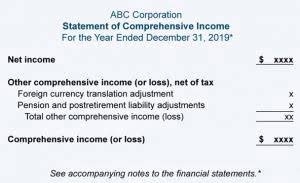
Our work has been directly cited by organizations including Entrepreneur, Business Insider, Investopedia, Forbes, CNBC, and many others. After successfully passing the exam, both professionals have to pay their respective licensing fees, which are priced at $140 for EAs and $175 what is an enrolled agent for CPAs. No rigorous experience or academic requirements are necessary to get the certification. A PTIN, passing the SEE, and a suitability check are the only conditions needed to get a certificate. Enrolled Agents must complete 72 hours of continued education every three years. Each year, a minimum of 16 hours must be obtained, of which two must be on ethics.

They must have a Preparer Tax Identification Number (PTIN), have timely filed all their own tax returns, and owe no outstanding tax debts to the IRS. Enrolled agents are specifically authorized to represent taxpayers before the IRS at all administrative levels, up to but not including Tax Court. Only attorneys and individuals who have passed the “Tax Court Exam For Non-Attorneys” are authorized to argue cases before Tax Court. During this time, the individual will be ineligible to practice before the Internal Revenue Service and may not state or imply that they are eligible to represent taxpayers, use the term Enrolled Agent, or use the EA designation. These tax professionals must undergo a comprehensive three-part SEE to get their qualification. They must also pass the verification of their background check and maintain their agent status through continuing education.


In 1972, a group of enrolled agents collaborated to form the NAEA to represent the interests of EAs and increase the professional development of its members. The enrolled agent credential isn’t a certification, although it’s often referred to as such by many practitioners, including the National Association of Enrolled Agents (NAEA). An enrolled agent must ledger account pass an IRS test covering individual and business tax returns to become credentialed. An exception to testing exists for those who have certain experience as an IRS employee. Enrolled agents must complete 72 hours of continuing education every 36 months to maintain their enrollment status with IRS. They are subject to the guidelines of Circular 230, which provides ethical standards in their profession.

They need to download Form 23, which is the application for getting permission to practice before the IRS. Next, the candidate must visit the Special Enrolment Examination Partnership Accounting (SEE) website, schedule the test, and prepare for the exam by going through the sample papers and other resources. The duties of the enrolled agent for IRS can be categorized under three heads, personal, client, and duty to tax administration. Beware of preparers who encourage you to lie or otherwise modify your information in order to get a bigger refund. A financial professional will offer guidance based on the information provided and offer a no-obligation call to better understand your situation. Our writing and editorial staff are a team of experts holding advanced financial designations and have written for most major financial media publications.

Discussed below are the primary differences between EAs and CPAs, which should provide a better understanding of which professional is most suitable for the work required. Julia Kagan is a financial/consumer journalist and former senior editor, personal finance, of Investopedia. The EA designation can be revoked for malpractice by the IRS Office of Professional Responsibility. Enrolled Agent status is the highest credential awarded by the IRS.1 According to the National Association of Enrolled Agents, there are approximately 87,000 practicing EAs in the United States. Ask a question about your financial situation providing as much detail as possible. They regularly contribute to top tier financial publications, such as The Wall Street Journal, U.S. News & World Report, Reuters, Morning Star, Yahoo Finance, Bloomberg, Marketwatch, Investopedia, TheStreet.com, Motley Fool, CNBC, and many others.